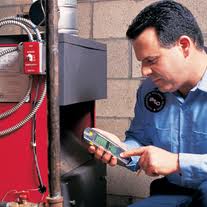Mobility was a recurring theme throughout last week’s Field Service 2011 conference, with many of the panels focusing on how service managers could use mobile to streamline all areas of their businesses, from improved first-call success rates to proactive dispatch and fleet GPS tracking. But with all the talk about mobile devices, are field service firms finally catching on to the money-making potential they provide?
 A recent article about mobile in the enterprise could sway some field service decision-makers on the matter, especially folks focused on the bottom line. MobileDemand, a vendor that makes some of the most heavy-duty devices on the market, explains how the benefits of mobile extend to most parts of a service organization.
A recent article about mobile in the enterprise could sway some field service decision-makers on the matter, especially folks focused on the bottom line. MobileDemand, a vendor that makes some of the most heavy-duty devices on the market, explains how the benefits of mobile extend to most parts of a service organization.
Improved first-call fix rates not only make customers happier but also reduce drive time, fleet stress, fuel costs and “field trips,” calls that require technician dispatch. Updated dispatch systems reduce technician downtime and enable managers to better adjust staffing levels. And technicians themselves benefit from increased visibility into customer information while working in the field, allowing them to do their jobs faster and more effectively. MobileDemand identifies four ways mobile devices help accomplish these goals in service, including:
Real-time access to information — Service technicians, given visibility into all product, customer and part information, can drastically improve first-time fix rates. Mobility also improves inventory and part management as techs can more accurately keep tabs on the parts they use in the field.
Reduce admin burden — Technicians can use cameras, bar code scanners and programs on the mobile devices to easily capture information. The result? Less paper-pushing in the office.
Get paid sooner — Technicians can generate invoices on the spot, capture customer signatures and even clearly communicate upsell opportunities. Mobile payment solutions such as Square and Intuit, while not in widespread use in the field (yet), further reduce the time it takes to get paid.
Keep promises — A field workforce, equipped with mobile devices, can more consistently meet SLAs and other required agreements.

Share this: